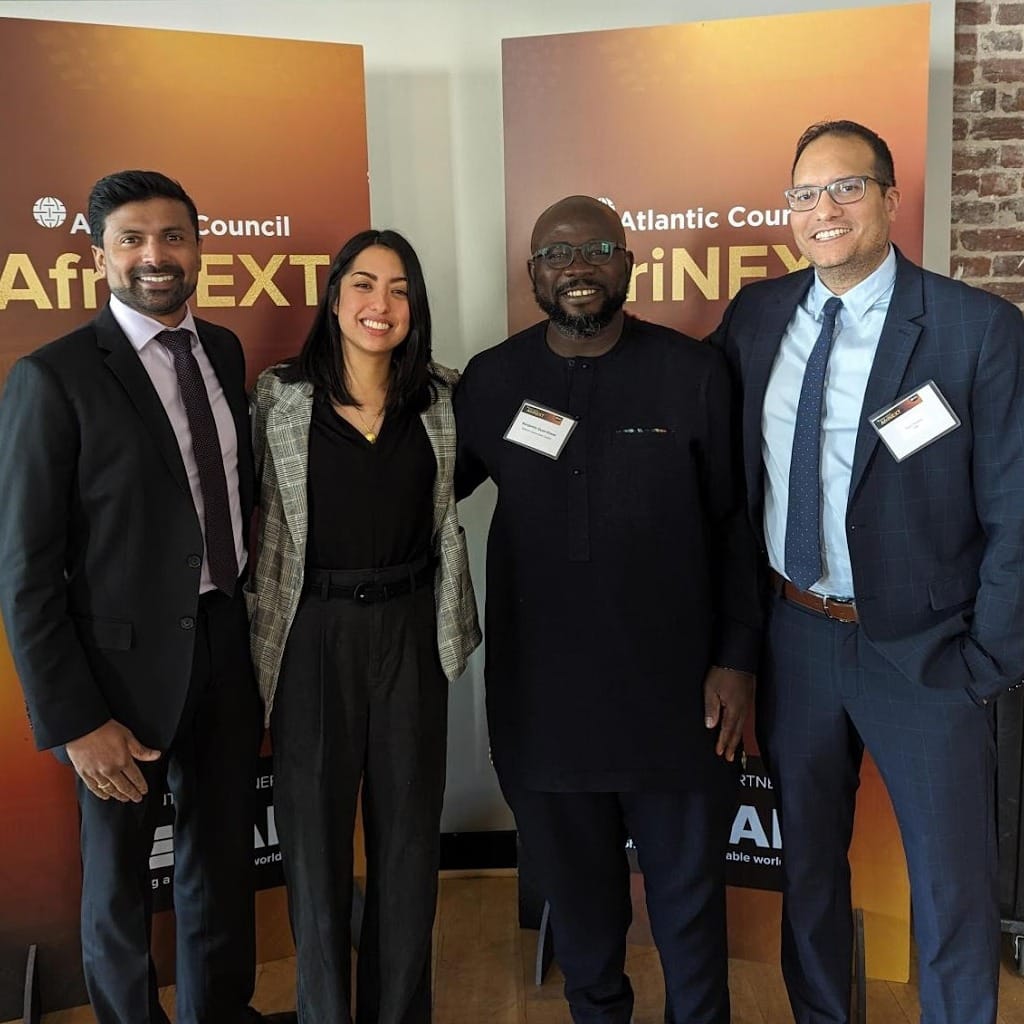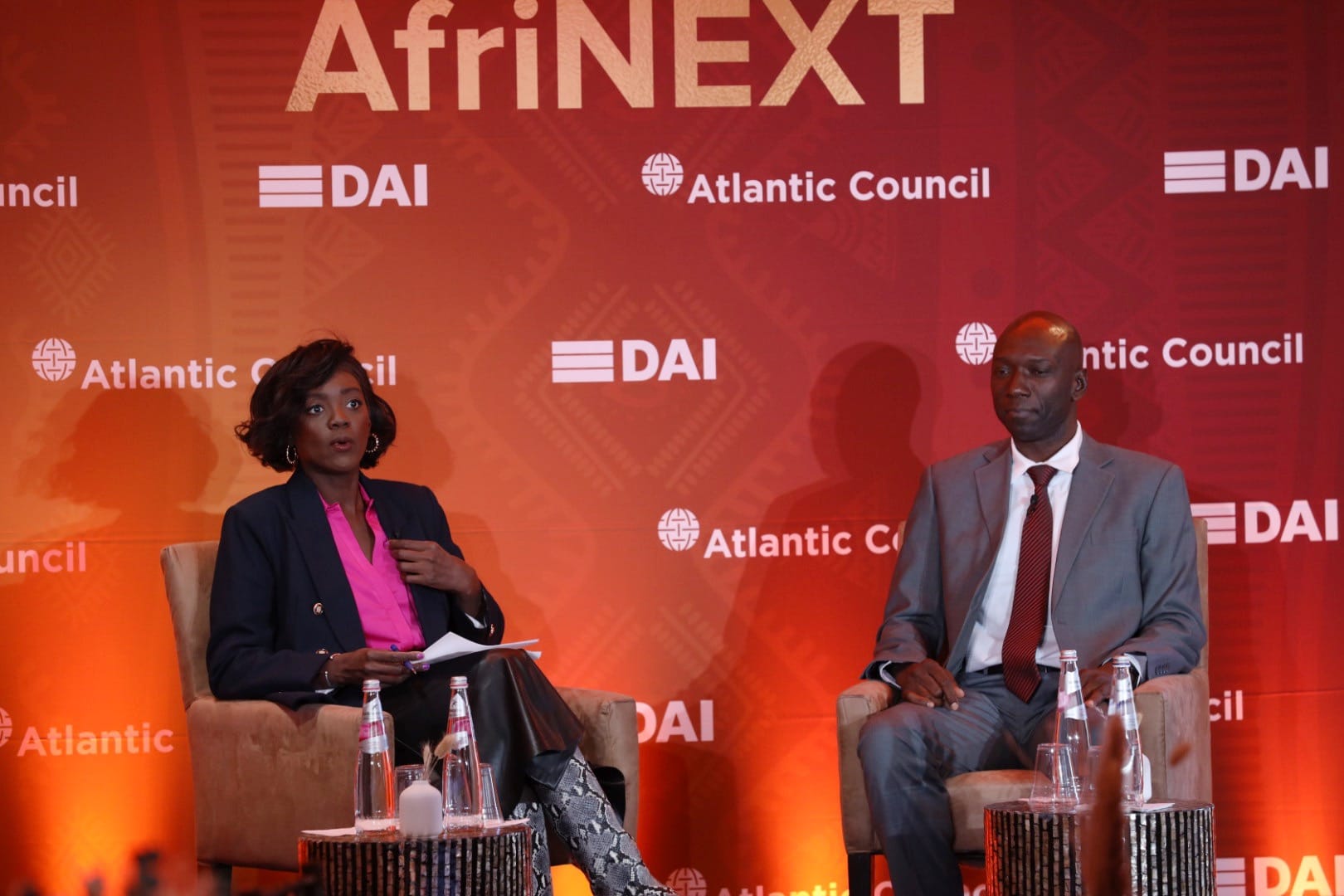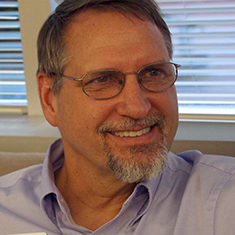“AI presents a risk and an opportunity when it comes to telling African stories,” says Rebecca Harrison, CEO of the African Management Institute, which focuses on leadership development for young people across the continent.
“A friend recently posted something that seemed pretty horrifying,” she says. “She had typed ‘black African doctor treating white kids’ into an AI image generator, and the image it came back with was a white doctor treating black African kids. The large language model it was feeding off of could not conceive of a black African doctor treating white kids. These models are so steeped in the stereotypes that we’ve fed them, and we need to take that seriously.”
It's a critical moment to shift the negative stereotypes and narratives that are out of touch with Africa’s realities. Africa’s boosters are eager to list the positive trends: The continent is home to many of the world’s most dynamic economies. The African Union was recently made a permanent member of the G20. The African Continental Free Trade Agreement is opening up new markets and promoting growth. The median age on the continent is 19, and this young population represents a powerful labor force, market opportunity, and source of creativity. By 2050, one in four people on the planet will be African.
To highlight these developments, the Atlantic Council and DAI recently convened AfriNEXT: A Celebration of African Creativity and Innovation. At the event, luminaries from across Africa shared their perspectives on what lies ahead for the continent, including the rising power of its youth, the impact of digitalization, the clean energy transition, and the business case for investment in African markets.
Here are some of the key takeaways:
A “Youthquake” is Reshaping the African Continent
The New York Times recently published an excellent series on Africa’s youth boom. A wave of African creativity is reaching far outside the continent, with Nollywood films filling screens and Afrobeats stars packing stadiums in London, New York, and beyond.
“Africans love the hustle,” said Worku Gachou of Visa, and this startup culture is a great match for the innovation and entrepreneurship that the United States is famous for. “With the African diaspora [in the United States], there is an opportunity to invest, to transfer knowledge and remittances, and to share their expertise,” said Deniece Lauren-Mantey of the President’s Advisory Council on African Diaspora Engagement. In 2021, the diaspora sent home nearly $100 billion in remittances, and these investments and connections to the continent are helping drive Africa’s growth from abroad.

Drive and Ingenuity
According to Harrison, the pandemic accelerated the adoption of technology in Africa and forced people to do things online that would have been outside of their comfort zone. It also intensified the “resilience mindset” she perceives in the entrepreneurs she works with.
“After COVID, depending on where you are on the continent, there’s been political unrest, currency crises—it doesn’t stop,” said Harrison. “In a way, it’s the great strength of many businesses across the continent: African businesses are brilliant at hustling, and it comes pretty naturally when you’re in a tough environment… There’s a mindset that as entrepreneurs in Africa and globally, uncertainty is the new certainty and we need to live with that. To me, that’s the potential competitive advantage of the continent—this hardscrabble resilience and ability to adapt.”
“Young people and entrepreneurs are bringing innovations that solve problems within their local communities,” said Benjamin Gyan-Kesse of the Kosmos Innovation Center, which focuses on leadership and entrepreneurship for youth. Many of these local problems are also global problems, and investors are drawn to the investment opportunities that can come from scaling local solutions into new markets.
Mobilizing Investment
There is a huge need for investment capital, and a lack of familiarity with African markets and perceptions of risk keep some investors away. For investment managers, small transaction sizes and fund sizes make it hard to generate the revenues they need to operate.
“How do you run a highly proficient, highly educated, highly impactful, helpful venture team when your asset management fees aren’t enough to hire analysts to help the founders when they’re trying to grow their businesses and get into different markets?” asked Justin James of Fireball Capital. “One thing that’s been very helpful recently is USAID via DAI—to create catalytic investment—they are giving grants to help those venture teams with working capital. That allows them to hire more analysts, manage the portfolios they have, and help those entrepreneurs scale. That, I think, is invaluable.”
According to DAI’s Joe Abah, the big question is: “How do we get the message across that despite the challenges like insecurity or a weak governance environment in many places, there’s actually a vibrant, willing, ready business environment for people to invest in?”
“We’re good at talking about the challenges but we’re bad at telling the good stories, and there are a lot of good stories,” said Paula Mokwena of Fireball Capital. “I could spend an entire day telling you about all the innovative entrepreneurs that we’ve funded that have been able to scale their businesses globally, that have been able to create solutions that are not only relevant for the African context but are also relevant in other emerging markets and international markets. Those stories are not being told enough.”
DAI is proud to have partnered with Fireball Capital, African Management Institute, and the Kosmos Innovation Center on initiatives around the world to develop the next generation of African leaders, drive investment in entrepreneurs and problem-solvers, and tell better stories.






